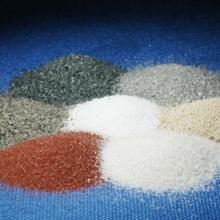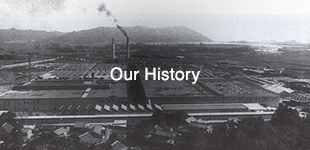
Introducing the special aggregate RCS with minor thermal deformation or dimensional changes
Overview
Cast iron is produced by pouring iron at 1,300 deg. C to 1,500 deg. C into a mold. Generally, silica sand used for molds exhibits sharp volume expansion following transformation at 573 deg. C. Its thermal expansion varies considerably between the surface of the mold and its inside. That distorts the mold and causes veining and other casting defects.
Optimal RCS may be designed with the use of different special aggregate materials with Introducing the special aggregate RCS with minor thermal deformation or dimensional changes low expansion properties as well as our resin and coating technologies.
Forms
- Sand
Applications
- General casting and others
Features
- It exhibits reduced thermal expansion than general silica sand.
- With limited thermal deformation and dimensional changes, it helps produce cast products with high precision.
- With the exception of olivine sand, low resin content tends to produce high strength.
- Given that it differs from general silica sand in composition, it gives molds high fire resistance or different thermal conductivity. transformation at 573 deg. C. Its thermal expansion varies considerably between the surface of the mold and its inside. That distorts the mold and causes veining and other casting defects. Optimal RCS may be designed with the use of different special aggregate materials with Introducing the special aggregate RCS with minor thermal deformation or dimensional changes low expansion properties as well as our resin and coating technologies.




















